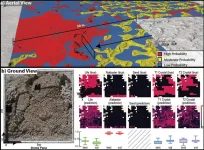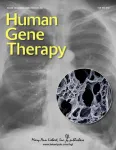New evidence released today from a study of 31,245 patients already taking statin therapy indicates that inflammation may be a more powerful predictor of risk of future cardiovascular events—such as heart attack and stroke — than “bad” cholesterol. Treatments that aggressively lower vascular inflammation need to be incorporated into daily practice if doctors are to maximize patient outcomes, according to the study’s corresponding author, Paul Ridker, MD, a preventive cardiologist at Brigham and Women’s Hospital, a founding member of the Mass General Brigham health care system. Ridker presented the findings at the American College of Cardiology meeting in New Orleans. Results are published simultaneously in The Lancet.
“The new data should be a wake-up call for preventive cardiologists and their patients,” said Ridker. “Virtually all patients with or at risk for atherosclerotic disease are appropriately treated with aggressive statin therapy. Yet, in our study of patients already taking a statin, hsCRP — a measure of residual inflammatory risk — was a more powerful determinant of having a future heart attack or dying from cardiovascular disease than was LDL- cholesterol – a measure of residual cholesterol risk. The data are a powerful demonstration that to beat heart disease, we need to lower both cholesterol and inflammation, not just cholesterol alone.”
Once a patient is on statin therapy, cardiologists typically describe two conditions: “residual cholesterol risk” which can be further reduced with additional lipid-lowering therapy, and “residual inflammatory risk” which can be further reduced with certain drugs that impact vascular inflammation. Whether clinicians should choose to focus on further lowering cholesterol or inflammation has been uncertain and controversial.
Ridker and colleagues examined data from three recently conducted clinical trials (PROMINENT, REDUCE-IT and STRENGTH) of patients with or at high risk for atherosclerotic disease to understand the relative importance of “residual inflammatory risk” as compared to “residual cholesterol risk” among contemporary statin-treated patients. All patients were receiving aggressive guideline directed medical care including statins, usually at high doses. But cardiovascular event rates in all three trials approached 10 percent at five years. In all three trials, blood levels of high-sensitivity C-reactive protein (hs-CRP, a measure of vascular inflammation) were significantly associated with major adverse cardiovascular events (MACE), cardiovascular mortality and all-cause mortality.
Moreover, the researchers report that hs-CRP was a more potent predictor of future cardiovascular risk than LDL-cholesterol. For example, among aggressively treated patients already on higher intensity statins, the risks of cardiovascular death and all-cause mortality were more than twice as high among those with the highest levels of CRP when compared to those with the highest levels of cholesterol, differences that were highly statistically significant.
The data have immediate implications for patient care today and for future research, according to the authors.
“There is no doubt that lower is better for LDL-cholesterol and we need to aggressively reduce cholesterol whenever possible. But if cardiologists want to eliminate cardiovascular disease, they clearly must target inflammation as well,” Ridker said.
Inflammation inhibition has been found in several clinical trials to reduce cardiovascular risk, yet uptake of anti-inflammatory therapy in daily practice has been limited. This has been particularly true for colchicine, an inexpensive anti-inflammatory therapy that reduced cardiovascular event rates in two major randomized trials with a benefit at least as large as that associated with much more expensive cholesterol lowering drugs. Ridker notes the importance of weighing the potential benefits of anti-inflammatory agents, in addition to statin therapy and lifestyle modifications, to lower cardiovascular risk.
“Beyond statins and consideration of anti-inflammatory agents, physicians should not lose sight of diet, exercise, and smoking cessation, all of which lower vascular inflammation and save lives,” Ridker said.
Disclosures: Ridker served as Trial Co-Chair of PROMINENT which was funded by an institutional research grant from Kowa, Inc. Dr. Ridker has received additional institutional research grant support from Novartis, Amarin, Pfizer, Esperion, NovoNordisk, and the NHLBI; has served as a consultant to Novartis, Flame, Agepha, AstraZeneca, Janssen, Civi Biopharm, Glaxo Smith Kline, SOCAR, Novo Nordisk, Uptton, Omeicos, Health Outlook, Montai Health, New Amsterdam, Boehringer-Ingelheim, Angiowave, RTI; Zomagen, Cytokinetics, Horizon Therapeutics, and Cardio Therapeutics; and receives compensation for service on the Peter Munk Advisory Board (University of Toronto), the Leducq Foundation, Paris FR, and the Baim Institute (Boston, MA). Disclosures of interest for co-authors of the study can be found in The Lancet.
Funding: The PROMINENT, REDUCE-IT, and STRENGTH trials were funded by Kowa, Inc; Amarin, Inc; and AstraZeneca, Inc, respectively.
Paper cited: Ridker PM et al. “Inflammation and cholesterol as predictors of cardiovascular events among patients receiving statin therapy: a collaborative analysis of three randomised trials” The Lancet DOI: /10.1016/S0140-6736(23)00215-5
END
Study finds residual inflammation after statin therapy strongly predicted cardiovascular events, death
Measure of inflammation was a stronger predictor of cardiovascular risk than measure of cholesterol. New data from more than 30,000 patients taking statins a “wake-up call” for the prevention of heart attack, stroke and cardiovascular death
2023-03-06
(Press-News.org)
ELSE PRESS RELEASES FROM THIS DATE:
Study finds exhaled breath could enhance detection, diagnosis of COVID-19 and variants
2023-03-06
The emergence of new COVID-19 variants has led to reduced accuracy across current rapid testing methods, but a recent University of Michigan study suggests that a patient’s breath might hold the key to a more precise diagnosis.
Investigators from the University of Michigan’s Max Harry Weil Institute for Critical Care Research and Innovation, including faculty and students from the College of Engineering and Michigan Medicine, used portable gas chromatography to examine breath samples collected during the pandemic’s Delta ...
Some ‘allies’ don’t want gay neighbors
2023-03-06
In a survey of 545,531 people, 8.5% of those who said they were ‘fully accepting’ of gay people did not want gay neighbors.
First study to explore stigmatizing behaviors expressed by avid supporters of sexual minorities
‘Simple legal inclusion can help mobilize the accepting population to their fullest potential’
CHICAGO --- When legal systems choose to offer no protections to sexual minorities, even avid LGBTQ supporters would reject their gay neighbors, reports a new Northwestern Medicine study.
The study examined ...
An innovative twist on quantum bits: Tubular nanomaterial of carbon makes ideal home for spinning quantum bits
2023-03-06
Scientists find that a tubular nanomaterial of carbon makes for ideal host to keep quantum bits spinning in place for use in quantum information technologies.
Scientists are vigorously competing to transform the counterintuitive discoveries about the quantum realm from a century past into technologies of the future. The building block in these technologies is the quantum bit, or qubit. Several different kinds are under development, including ones that use defects within the symmetrical structures of diamond and silicon. They may one day transform computing, accelerate drug discovery, generate unhackable networks and more.
Working with researchers from several universities, scientists ...
LOINC continues facilitating health data interoperability with biannual issuance of new concepts
2023-03-06
INDIANAPOLIS -- LOINC® from Regenstrief Institute is issuing its semi-annual release, which contains 608 new concepts to help health systems, laboratories and other health organizations accurately exchange medical data. Some of the new information has been released in coordination with the U.S. Food and Drug Administration, the U.S. Centers for Disease Control and Prevention and the Association of Public Health Laboratories.
“Aligning the release of LOINC with emerging healthcare trends is an important component of our mission and critical in promoting effective health information exchange among providers, patients and health systems,” said Marjorie Rallins, ...
New study uncovers key culprit behind pediatric brain cancer metastasis
2023-03-06
New research pinpoints a key cause of metastasis from an aggressive form of brain cancer in children and provides a potential new therapy for treating these tumors in the future.
In a paper, published in Nature Cell Biology, physician-scientists from the University of Pittsburgh and UPMC Children’s Hospital of Pittsburgh discovered that medulloblastomas hijack a skill that normal brain cells use during their early development and then manipulate it to help tumors spread.
“Children with medulloblastomas that have not yet metastasized may have a high likelihood of long-term survival, but if ...
Can artificial intelligence help find life on Mars or icy worlds?
2023-03-06
March 6, 2023, Mountain View, CA – Wouldn’t finding life on other worlds be easier if we knew exactly where to look? Researchers have limited opportunities to collect samples on Mars or elsewhere or access remote sensing instruments when hunting for life beyond Earth. In a paper published in Nature Astronomy, an interdisciplinary study led by SETI Institute Senior Research Scientist Kim Warren-Rhodes, mapped the sparse life hidden away in salt domes, rocks and crystals at Salar de Pajonales at the boundary of the Chilean Atacama Desert and Altiplano. Then they trained a machine learning model to recognize the patterns and rules associated with their distributions ...
Geosciences at the Crossroads of America
2023-03-06
Boulder, Colo., USA: Oklahoma State University is hosting the 57th annual meeting of the Geological Society of America’s South-Central Section on 13–14 March. The meeting will have a diverse program of workshops, technical sessions, short courses, and field trips that covers a spectrum of geologic disciplines.
The list below highlights a selection of environmental-related session topics you might like:
· Tar Creek Superfund Site Field Trip (Field Trip)
Managed Aquifer Recharge in the Arbuckle Simpson Aquifer (Field Trip)
Geoscience Career Workshop: Career Planning and Networking
· Hydrogeologic Challenges and Roles ...
Gene and cell therapies to combat pancreatic cancer
2023-03-06
Pancreatic cancer is an incurable form of cancer, and gene therapies are currently in clinical testing to treat this deadly disease. A comprehensive review of the gene and cell biotherapies in development to combat pancreatic cancer is published in the peer-reviewed journal Human Gene Therapy. Click here to read the article now
The article titled “Pancreatic Cancer Cell and Gene Biotherapies: Past, Present and Future,” contributed by corresponding author Pierre Cordelier, from the University of Toulouse, and coauthors, ...
Oncotarget | HALP score: Prognostic ability in cancers - a literature review
2023-03-06
“In the last several years, the Hemoglobin, Albumin, Lymphocyte, Platelet Score (HALP) has emerged in the literature as a new prognostic biomarker [...]”
BUFFALO, NY- March 6, 2023 – A new review paper was published in Oncotarget's Volume 14 on February 25, 2023, entitled, “What is hemoglobin, albumin, lymphocyte, platelet (HALP) score? A comprehensive literature review of HALP’s prognostic ability in different cancer types.”
Since its inception, the Hemoglobin, Albumin, Lymphocyte, Platelet (HALP) Score has gained attention as a new prognostic biomarker to predict several clinical outcomes in a multitude ...
Nationwide study finds that women have greater risk of mortality than men after coronary artery bypass surgery
2023-03-06
Compared with men, women continue to have a roughly 30-40 percent higher risk of dying following coronary artery bypass surgery, according to a large study led by investigators at Weill Cornell Medicine and NewYork-Presbyterian/Weill Cornell Medical Center. The analysis showed that, without adjusting for differences in age and other health factors that influence risk, the female bypass patients had a 2.8 percent rate of death during or soon after surgery, compared with 1.7 percent for male patients, a nearly 50 percent difference that only dropped 10-20 percent after accounting for these factors.
The study, which appears Mar. 1 in JAMA Surgery, was based on ...
LAST 30 PRESS RELEASES:
Public and patient involvement in research is a balancing act of power
Scientists discover “bacterial constipation,” a new disease caused by gut-drying bacteria
DGIST identifies “magic blueprint” for converting carbon dioxide into resources through atom-level catalyst design
COVID-19 vaccination during pregnancy may help prevent preeclampsia
Menopausal hormone therapy not linked to increased risk of death
Chronic shortage of family doctors in England, reveals BMJ analysis
Booster jabs reduce the risks of COVID-19 deaths, study finds
Screening increases survival rate for stage IV breast cancer by 60%
ACC announces inaugural fellow for the Thad and Gerry Waites Rural Cardiovascular Research Fellowship
University of Oklahoma researchers develop durable hybrid materials for faster radiation detection
Medicaid disenrollment spikes at age 19, study finds
Turning agricultural waste into advanced materials: Review highlights how torrefaction could power a sustainable carbon future
New study warns emerging pollutants in livestock and aquaculture waste may threaten ecosystems and public health
Integrated rice–aquatic farming systems may hold the key to smarter nitrogen use and lower agricultural emissions
Hope for global banana farming in genetic discovery
Mirror image pheromones help beetles swipe right
Prenatal lead exposure related to worse cognitive function in adults
Research alert: Understanding substance use across the full spectrum of sexual identity
Pekingese, Shih Tzu and Staffordshire Bull Terrier among twelve dog breeds at risk of serious breathing condition
Selected dog breeds with most breathing trouble identified in new study
Interplay of class and gender may influence social judgments differently between cultures
Pollen counts can be predicted by machine learning models using meteorological data with more than 80% accuracy even a week ahead, for both grass and birch tree pollen, which could be key in effective
Rewriting our understanding of early hominin dispersal to Eurasia
Rising simultaneous wildfire risk compromises international firefighting efforts
Honey bee "dance floors" can be accurately located with a new method, mapping where in the hive forager bees perform waggle dances to signal the location of pollen and nectar for their nestmates
Exercise and nutritional drinks can reduce the need for care in dementia
Michelson Medical Research Foundation awards $750,000 to rising immunology leaders
SfN announces Early Career Policy Ambassadors Class of 2026
Spiritual practices strongly associated with reduced risk for hazardous alcohol and drug use
Novel vaccine protects against C. diff disease and recurrence
[Press-News.org] Study finds residual inflammation after statin therapy strongly predicted cardiovascular events, deathMeasure of inflammation was a stronger predictor of cardiovascular risk than measure of cholesterol. New data from more than 30,000 patients taking statins a “wake-up call” for the prevention of heart attack, stroke and cardiovascular death




